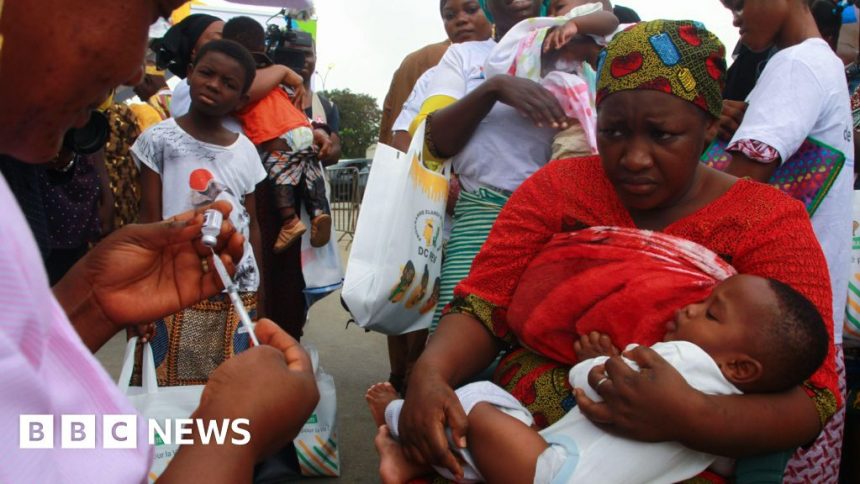Hundreds of thousands of lives could be saved this decade thanks to a new malaria vaccine, the head of the jab development team has said.
Sir Adrian Hill, professor of vaccinology at the University of Oxford, said he hoped R21/Matrix-M would pave the way for a “really serious” attempt at eradicating the disease.
The first doses of the vaccine were rolled out in the Ivory Coast on Monday.
It is the first malaria vaccine to meet the World Health Organisation’s (WHO) target of 75% efficacy at preventing the disease.
Speaking to the BBC Radio 4’s Today programme, Sir Adrian said: “I think during this decade, we can knock half a million deaths a year right down to maybe 200,000 if things go well and then, ultimately, probably next decade will be a really serious attempt at eliminating and eradicating malaria.”
R21/Matrix-M was developed under Sir Adrian at the university’s Jenner Institute.
He said: “This is a vaccine that was designed and developed in 2012 and has been progressing since then.”
He said its relatively low cost meant it was “realistic to roll this out in many tens of millions of doses from now on”.
“Instead of this being nine or 10 (US) dollars, as with the original vaccine per dose, this is just under four dollars, and that makes a real difference in low-income countries,” he added.
“That’s why the development is really important because everyone sees this as an affordable vaccine.”
It is given to children, typically of five, six and seven months of age, four weeks apart, followed by a booster a year later.
It primes the blood with antibodies that target the malaria protein, known as circumsporozoite protein (CSP).





